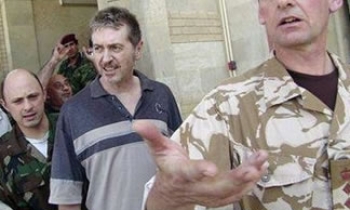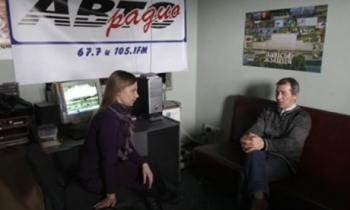A leading British imam has urged Muslims in the UK to look to their own behaviour and see if they are following the Prophet’s commandments in their own lives before lashing out against the controversial cartoons.
Imam Ibrahim Mogra, a preacher in Leicester and a senior member of the Muslim Council of Britain, said that British Muslims were "upset, distraught and angry" about the repeated publication of the offending cartoons across Europe.
"I am urging them to calm down and take stock of their own lives. We should all remain within the law and not be provoked by hot-heads on both sides," he said.
Imam Mogra, a theologian and expert in Islamic law or Sharia, explained why Muslims had been so hurt by the caricatures. He said that Muslims started from the position of loving God, which meant total obedience to his messenger, Mohammed. Even moderate Muslims took seriously the Koranic injunctions to listen to the Prophet, and not to be forward in the presence of God or his messenger.
They also believe, from chapter 21, verse 107, that God sent Mohammed as his messenger as an act of "mercy" to the whole world. In addition, Mohammed is reported in the Hadith to have told his followers: "None of you is a true believer until I become more beloved to him than his child, his father and the whole of mankind."
Imam Mogra said: "Because of these teachings it is very easy for Muslims to feel hurt and pain when such an important person is vilified in this manner."
He said most Muslims believed Mohammed’s teachings were primarily about living in peace and harmony with the rest of the world. So to depict him as a terrorist with a bomb for a turban, as in one of the cartoons, was deeply distressing for Muslims.
He said: "Our own claim to be Muslim depends on our love and respect for the Prophet. If our love and respect is not of the highest level, we are only partly on our way to attaining God’s pleasure."
But he urged Muslims not to over-react.
"We must today stick to our own lives as Muslims as to how much we uphold the teachings of this great person who was a source of guidance and goodness and mercy to this world. Many times we forget some very important things he taught us.
"The Messenger said we must love our neighbour, we must do unto others what we want done unto ourselves, we must care for the poor and needy, we must stand up for justice, we must stand against oppression, we must be honest in our dealings, we must not cheat, lie or swear."
He said every Muslim should be aware of these commands, every moment of the day. "This is where the true test lies. If we love Mohammed and we love our God, we will do our very best to carry out these teachings in our lives.
"Islam is a positive force in our country. It is not something we should be afraid of or alarmed by. I would say Islam is for Britain a welcome thing, but we Muslims have to ensure we live like Muslims, that we live and breathe Islam."
He said he was praying that there would be no terrorist reprisals.
"The Messenger taught that no matter what the wrong or injustice done to us, we do not lower ourselves to that level where we carry out revenge. To carry out a terrorist attack because of this incident would not be justified."
Other religious leaders also urged caution and restraint on members of their own faith communities. The Bishop of Oxford, the Right Rev Richard Harries, said: "Those newspapers that have decided not to print the cartoons at this time have acted wisely and in the public good. Freedom of speech is fundamental to our society and all religions need to be open to criticism. But this freedom needs to be exercised responsibly with a sensitivity to cultural differences."
The Chief Rabbi, Sir Jonathan Sacks, said: "Civilization needs civility. Judaism says that putting someone to shame is like bloodshed. At the end of every prayer we pray, we ask God to guard our tongue from evil.
"The only way to have both freedom of speech and freedom from religious hatred is to exercise restraint. Without that, we can have one freedom or the other, but not both. Law alone won’t solve the problem."
Father Allen Morris, the Secretary for the Department of Christian Life and Worship, Roman Catholic Bishops' Conference of England and Wales, said: "Freedom of speech is always something which is exercised in a context. If I know something is going to cause grave offence to someone, I think twice before saying it.
"Others would perhaps be critical of the Christian Church in the West for having become too soft and tolerant to things which they feel ridicule or belittle the Christian faith. When it comes to freedom of speech, there is really no easy answer. It leads us into an area of dialogue. The difficulty is that when people's passions are aroused, dialogue is not so easy."
Lord Carey of Clifton, the former Archbishop of Canterbury, issued a joint statement with Imam Feisal Abdul Rauf, the director of the Cordoba Initiative and a leading Muslim teacher in the US. They said that they were saddened and appalled by the cartoons, and "the irresponsible action of the papers in Denmark and France" in allowing the cartoons to be published.
They went on: "We recognise the importance of free speech and we agree that religions should not expect any favours or privileges against other groups in society. However to publish such offensive cartoons will be seen by many around the world as an attack on a world faith, and only deepens the suspicion between the West and the Muslim world. We call for calmness and peace. Such actions only prove the necessity to deepen the dialogue between our faiths and cultures."









